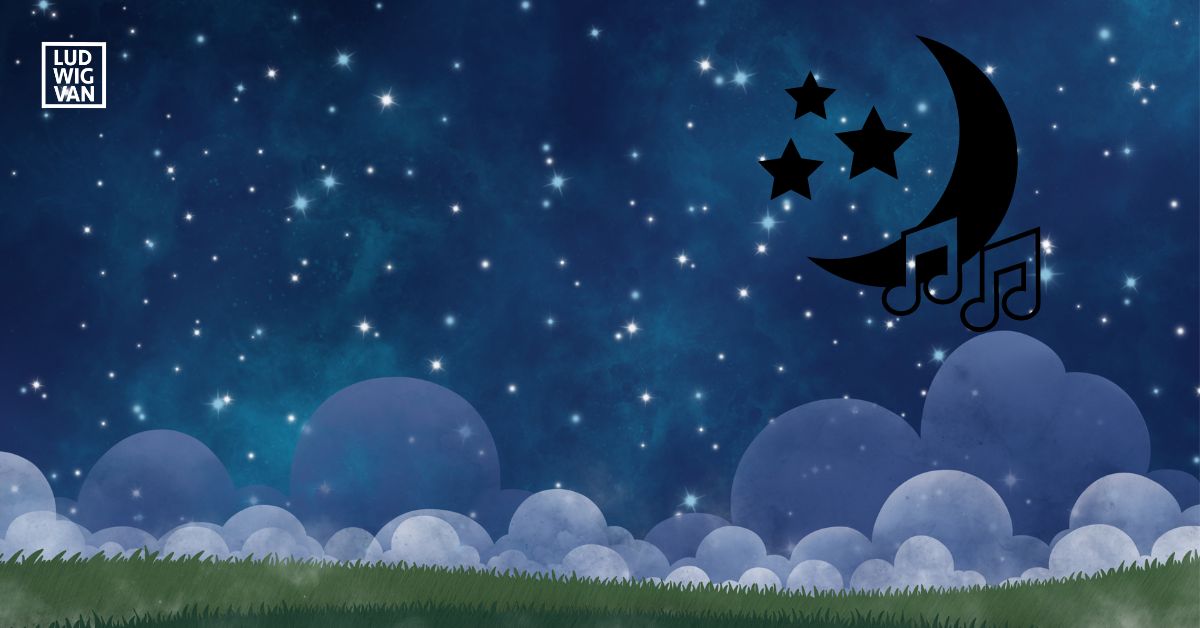
The practice of listening to music to fall asleep is a longstanding and very common one that crosses cultures. Up until recently, however, the mechanisms of how and why were not examined by scientific study.
Researchers at the Aarhus University & The Royal Academy of Music Aarhus/Aalborg in Denmark recently published a paper in PLOS ONE, an interdisciplinary journal that looks at that very question. The audio features of sleep music: Universal and subgroup characteristics was published on January 18, 2023.
Music to sleep by
Since time immemorial, parents and caregivers have sung lullabies to little ones to help them fall asleep. Nowadays, with music, more and more accessible to anyone via streaming, and a vast pool of existing recorded music, the habit of using music to help fall asleep, and even improve sleep, is more common than ever before.
But, just what characteristics in a particular piece of music help us to sleep? The answer, as it turns out, is more complicated than it seems.
The researchers used Spotify playlists compiled for sleep, more than 225,000 to be exact, in order to extract common characteristics. They compared the tracks chosen to help people sleep to the average characteristics of music in general.
To begin with, it was more often:
- Softer;
- Slower;
- Instrumental, with no lyrics;
- Performed on acoustic instruments.
Those elements coincide with most assumptions about the kind of music that would relax and help people slide into slumber. Among the usual suspects were classical gems like Debussy’s Claire de Lune, Pachelbel’s Canon in D, and Brahm’s Lullaby, along with Twinkle, Twinkle, Little Star and other nursery rhyme favourites.
At the same time, the results of the analysis included some characteristics that would seem counterintuitive. Six distinct subgroups emerged in the analysis of sleep-inducing music. The largest subgroup was Ambient music, as would be expected, which corresponded to all the expected characteristics.
- Within the other subgroups, about half the characteristics correspond with the general list above;
- The other half diverges from them in various ways, including scoring higher in energy, and lower in what they called ‘instrumentalness‘ (i.e. more vocal tracks, as opposed to strictly instrumental);
- Three of the subgroups included fast, energetic, and even louder than the average;
- Those subgroups consisted of popular and well-known tracks.
The higher energy, danceable tracks (the most popular of which was Dynamite by K-pop band BTS), tended to be medium-low tempo, often with half-time speeds, and an emphasis on melody with spare instrumental arrangements.
Familiarity breeds relaxation
In addition, people’s motivations for listening to music when they sleep also incorporated four different subgroups.
- To switch from their current state of mind;
- To feel safe and secure;
- To distract from pressing thoughts and concerns;
- As a habitual part of bedtime ritual.
The researchers posed the theory that it was the familiarity of the tracks that made them suitable for sleeping and relaxation. Predictive coding is one of the more popular theories of brain function. It means that your brain is constantly predicting what will happen next, based on the sensory input it receives. If something happens that’s different from the prediction, we pay more attention, as the brain processes it for future reference.
When a piece of music (or other stimuli) becomes more and more familiar, we pay less and less attention, and our energy level drops. That may lead to relaxation, although the study’s authors stress that the theory has yet to be tested.
Why is it important?
The end goal of the study wasn’t idle curiosity. A better understanding of the varied ways that music can help people to sleep adds to our overall understanding of the ways that music can modify human behaviour.
There are implications for expanding the use of music not only in therapy but for everyday use. Lack of sleep, and poor quality of sleep, are common problems in today’s fast-paced society. Music can be an effective way to help.
- Sustainability and the Music Industry - February 26, 2024
- Online Content Creators Continue Trend of Choosing Classical Music - December 18, 2023
- TikTok #Classicalmusic Challenge Returns For Round 2 - July 31, 2023


